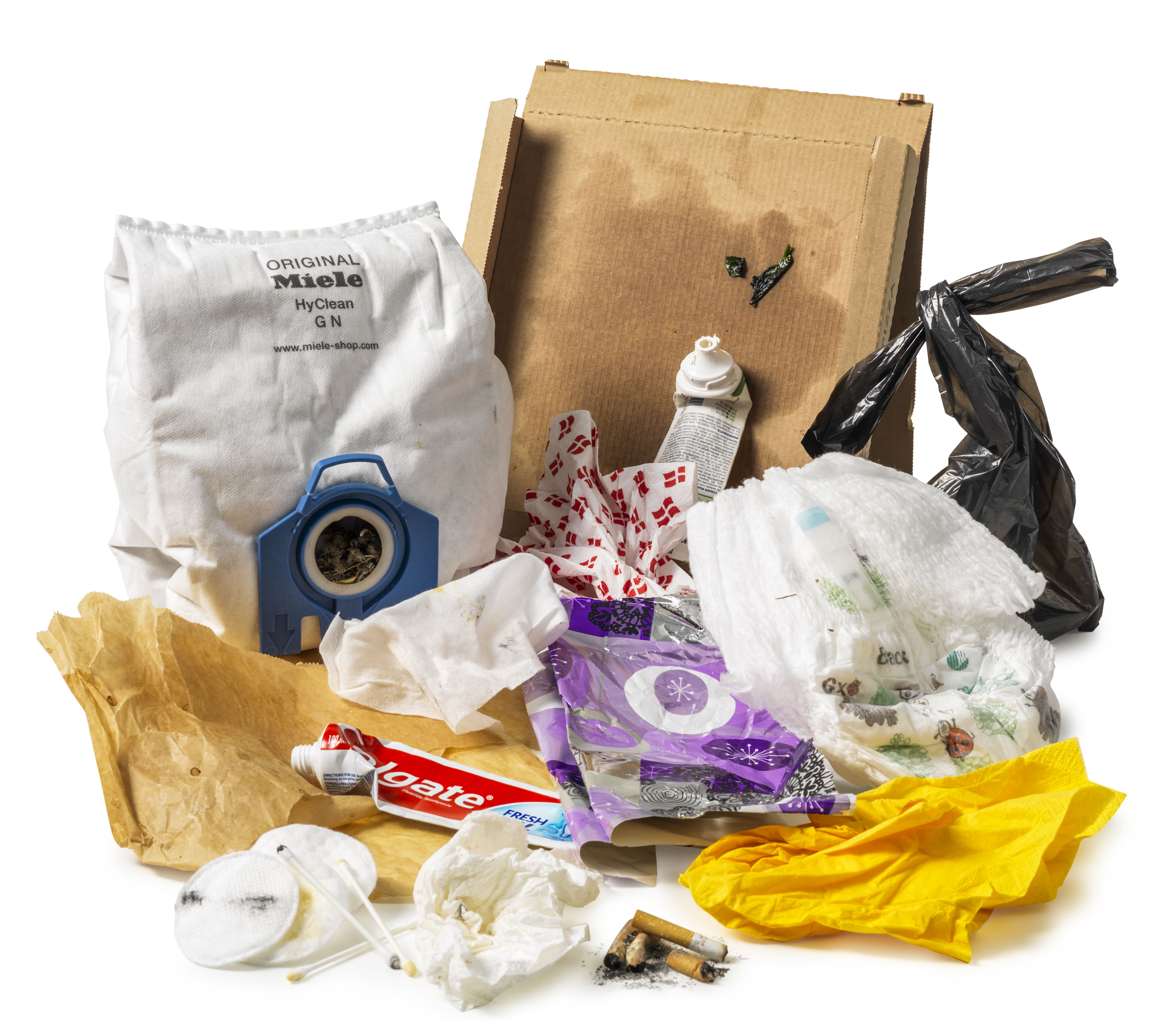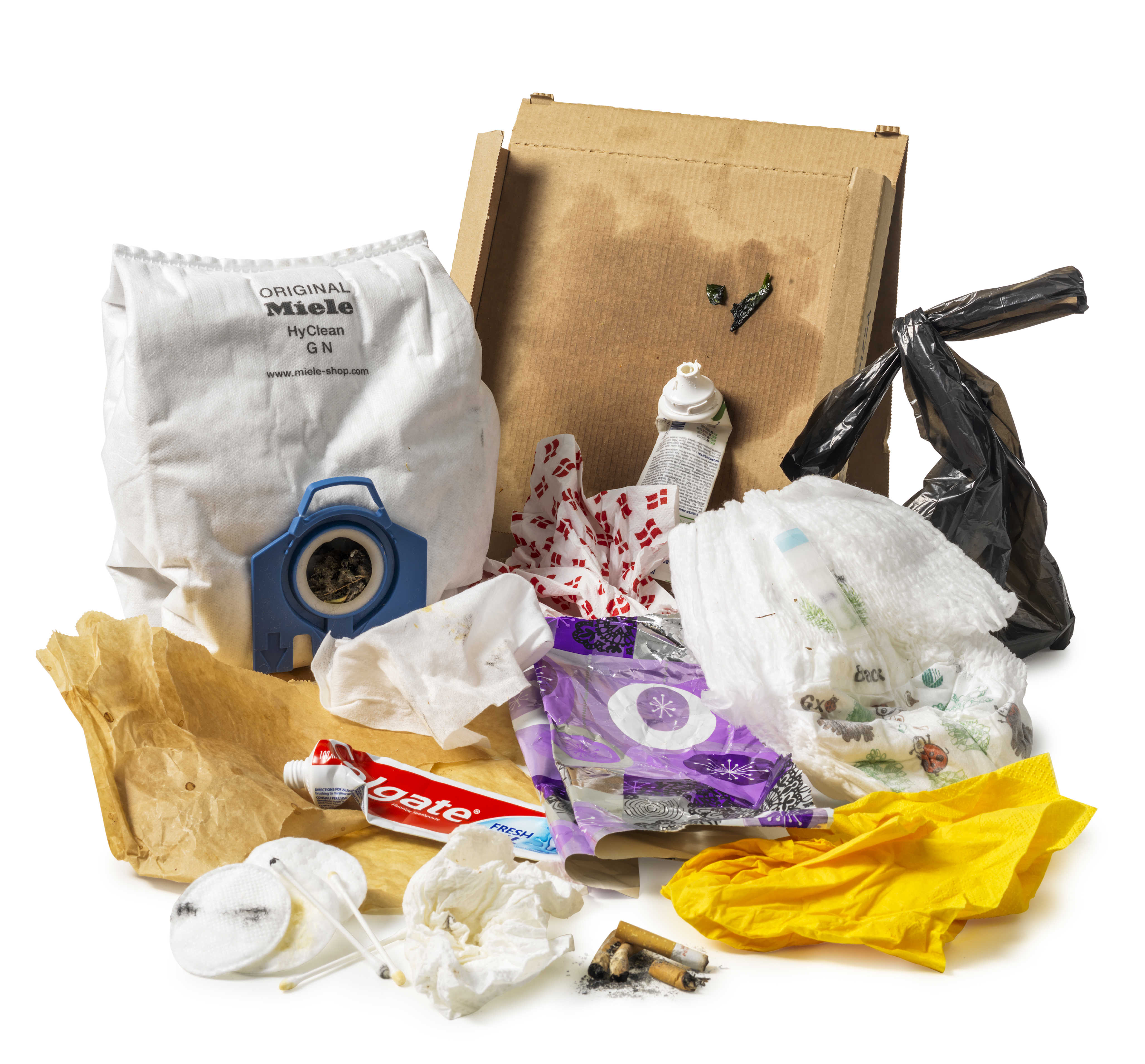
Residual Waste
Residual Waste (Restaffald) is the waste that you put in your bin, when you have separated it from your food waste and recyclable waste.
Examples of this could be hoover bags, empty toothpaste tubes, crisp packaging, or anything else which can't be recycled. It is also nappies, pizza boxes and bathroom waste. Please keep in mind that batteries and chemicals should always be handled as hazardous waste.
Use the self-service
With our self-service Mit affald (My waste) you can check which containers are allocated to your address. You can also see when we come to collect your different bins, change your bin size and collection frequency, and you can join our text service that let you know when you can order curbside collections and much more.
Another possibility is our app AffaldRanders, which you can download via App Store or Google Play for free.
Do not overfill your bin
You should never overfill your bin. You risk that we do not collect it. We always recommend the double-bins. They have a greater capacity and they are generally also cheaper. We have two kinds of double bins (where you separate into two compartments). One is for food waste and residual waste and the other one is for glass and metal in one compartment and in the other compartment plastic (both soft and hard) plus food- and beverage cartons. The third bin is for paper and cardboard. The cardboard should be ripped in smaller pieces, or it will potentially get stuck. If that happens we can't empty your bin. The paper and cardboard bin is only emptied every 4 weeks.
The better you are at separating your different kinds of waste, the more space you have for your different kinds of waste. It can also save you money if you can make do with a smaller bin or change from a weekly collection to one every fortnight instead. This guide shows you what should go in the different fractions.
Don't worry - it's quite simple once you get started!
It may all seem a bit complicated, but it really isn't. We know this from the people, who have already started sorting their waste into the different fractions.
